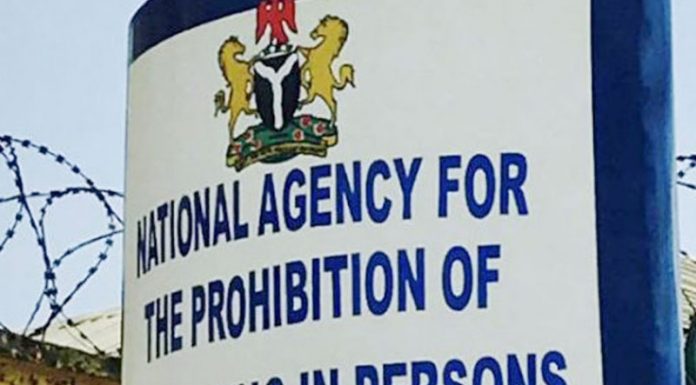Kano Residents Express Worry Over Child Trafficking, Blame Poor Parenting

Residents of Kano have expressed concern about the rate of child trafficking in the state following the arrest of three suspects by the National Agency for the Prohibition of Trafficking in Persons (NAPTIP) for selling a one-year-old boy in Imo.
Those arrested include a ward head in the Fagge Local Government Area where the victim hails from, the commander of hisbah, Jamilu Mohammed, and one Mrs Loveth. Loveth’s mother was also held for being in custody of the boy.
Shehu Umar NAPTIP Kano Zonal Commandant disclosed on Monday that the suspects are in custody and further investigation was being conducted on the victim’s illegal adoption and trafficking.
Dr Abdulhadi Zubairu Chula, a public commentator and resident of Kano, said there is a need for sensitisation and public enlightenment on the importance of children. He argued that most households did not know the importance of children and was why parents ended up losing their children to the wrong people.
“We are brought up in a traditional society where people move about freely. However, parents should keep an eye on their children and show them concern whenever they are absent from home,” he said.
“The issue of illegal pregnancy is also one of the major causes of child trafficking. Most ladies who find themselves in such situations connive with their parents to displace the child,” he added.
“Broken homes contribute also. When a mother is no more in her marital home, the child might be neglected by the stepmother. The government should form a committee towards sensitising the public, schools, and find other means to educate them on the dangers of parental negligence.”
Aminu Wada, who resides in Fagge, noted that the community is home to many people from different backgrounds and some of whom operate illegal businesses.
“However, it is so alarming to see small children parading the street freely without parents’ concern. This creates an opportunity for the notorious traffickers to abduct children on the streets,” he said.
Another resident, Amina Gambo Bala, described the situation as worrisome.
“Most of the fault comes from the parents who allow their children to roam the streets,” he observed. “I advise parents to take care of their children and also the government should assign law enforcement agencies to the various areas where the crime is common.”
According to Kabiru Yusuf Ado, abject poverty in the northwest has aggravated the trafficking of children, sometimes facilitated by the parents themselves.
“Lack of education also contributes. There is a need to enlighten the public on the consequences of trafficking their children,” he appealed.
NAPTIP’s Kano Zonal Commandant, Shehu Umar, highlighted other factors as greed, peer pressure, large family sizes, and lack of parental care.
“The agency has been making efforts to curb child trafficking in Kano through sensitisation. We have identified endemic areas where victims are recruited for adult child labour and child trafficking,” he said.
“A department in the organisation usually reaches out to those communities to enlighten them on the dangers of child trafficking and this duty is carried out every Thursday. If culprits are arrested with full evidence, we charge them court to serve as deterrence to others.”
He said the agency has recorded, in the last four years, 121 cases of child abuse, 75 cases of child labour, 110 cases of sexual abuse, and 14 rape cases. 1,489 victims, aged between six and 25 years, were rescued in the period, the majority of them female.
Meanwhile, the state governor, Abdullahi Umar Ganduje, has inaugurated a committee to implement the report on the probe into the abduction of some children in 2019, who were sold in Anambra. The inquiry commission led by the retired Justice, Wada Abubakar Umar Rano, had completed its investigation in February and submitted its findings to the state government.
Support Our Journalism
There are millions of ordinary people affected by conflict in Africa whose stories are missing in the mainstream media. HumAngle is determined to tell those challenging and under-reported stories, hoping that the people impacted by these conflicts will find the safety and security they deserve.
To ensure that we continue to provide public service coverage, we have a small favour to ask you. We want you to be part of our journalistic endeavour by contributing a token to us.
Your donation will further promote a robust, free, and independent media.
Donate HereStay Closer To The Stories That Matter




